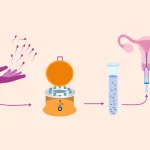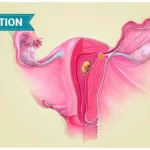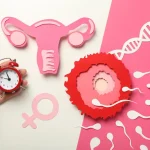What Happens if IVF Transfer Fails?
This is one of the hardest questions couples face during their fertility journey. IVF, or in vitro fertilization, offers hope to millions of people struggling to conceive, but success is not guaranteed on the first try. Embryo transfer — the final and most anticipated stage of the IVF process — sometimes does not result in pregnancy. While this can be devastating, understanding why IVF transfers fail and what steps you can take next can help you feel more in control and hopeful about future attempts.
Why Do IVF Transfers Sometimes Fail?

Even when everything seems perfect, IVF transfers can fail for a variety of reasons. Fertility is influenced by many factors, and success depends on the health of the embryo, the receptivity of the uterus, and sometimes just biology that science cannot fully predict.
1. Embryo Quality
Not all embryos are genetically normal, even when they look healthy under a microscope. Chromosomal abnormalities can prevent implantation or cause early miscarriage. This is why preimplantation genetic testing (PGT-A) is often recommended to increase success rates.
2. Uterine Environment
The lining of the uterus must be thick and receptive for implantation to occur. If the endometrium is too thin, scarred, or inflamed, the embryo may not attach successfully. Conditions like fibroids, polyps, or endometriosis can also play a role.
3. Immune and Blood Factors
Sometimes the body’s immune system reacts in ways that make it harder for an embryo to implant. Issues like abnormal clotting or high natural killer cell activity have been studied as potential barriers.
4. Lifestyle and Health Factors
Smoking, high stress, excessive alcohol, or unmanaged health conditions like thyroid disease and diabetes can lower IVF success rates. Optimizing health before treatment is key.
5. Unexplained Reasons
Despite all testing, some failed transfers remain unexplained. Fertility specialists stress that this does not mean future cycles will fail, too — success often comes after persistence.
Signs of IVF Transfer Failure
Many patients wonder if there are early signs that an embryo transfer has failed. Unfortunately, symptoms are not always reliable. Some women experience cramping or spotting, which can happen with both implantation and failed cycles. The only definitive way to know is through a beta hCG blood test about 10–14 days after transfer.
Common experiences after a failed transfer may include:
● No rise in hCG levels after testing.
● Menstrual bleeding starts around the time your period would normally arrive.
● Emotional distress and disappointment are very normal reactions.
What Happens After a Failed IVF Cycle?
While a failed cycle is painful, it does not mean the journey is over. In fact, many couples go on to have successful pregnancies after one or more failed transfers.
- Follow-Up Consultation
Your fertility specialist will review the cycle in detail, looking at embryo quality, uterine preparation, and lab results. This helps determine what may need adjusting. - Additional Testing
Depending on your history, your doctor may recommend further tests such as hysteroscopy (to check the uterus), immune panels, or clotting tests. - Adjusting Protocols
Medication dosages, timing, or transfer techniques may be modified for the next cycle. Some patients may benefit from trying frozen embryo transfer (FET) instead of fresh transfer. - Considering Genetic Testing
PGT-A can identify chromosomally normal embryos, improving chances of implantation. - Emotional Support
Failed cycles are emotionally taxing. Many people benefit from counselling, support groups, or simply giving themselves time to heal before trying again.
Can You Try Again After IVF Transfer Failure?

Yes. Most fertility doctors encourage patients not to give up after a failed attempt. Statistics show that success rates improve over multiple cycles. Each attempt provides valuable insights that can improve the strategy for the next round.
● After one IVF cycle, the chance of pregnancy may be 30–40%, but cumulative success rises significantly after two or three cycles.
● Many clinics report that persistence often pays off, with a majority of couples achieving pregnancy within three attempts.
How to Improve Your Chances in the Next Cycle
If you’re preparing for another round of IVF after a failed transfer, there are practical steps you can take:
Optimize your health: Maintain a balanced diet, exercise moderately, and quit smoking or drinking.
Manage stress: Mind-body techniques like yoga, meditation, or therapy can help.
Consider add-on treatments: In some cases, procedures like endometrial scratching or using assisted hatching may be discussed with your doctor.
Freeze now, transfer later: Some patients have higher success with frozen embryo transfers, as the body has more time to recover after stimulation.
Coping With the Emotional Impact
Perhaps the hardest part of a failed IVF transfer is the emotional toll. Grief, frustration, and feelings of hopelessness are common. It’s important to remember:
● You are not alone — thousands of couples go through this.
● Support is available through fertility counselors, peer groups, and online communities.
● Many people need more than one cycle to succeed, and each step brings you closer to understanding your unique fertility journey.
Final Thoughts
A failed IVF transfer does not mean the end of your dream to become a parent. While it can feel like a devastating setback, it is often just one step in the longer IVF journey. Understanding why transfers fail, exploring adjustments for future cycles, and taking care of your emotional well-being can help you move forward with renewed hope.If you’ve experienced an IVF transfer failure, don’t lose hope. At The Bridge Clinic, we specialize in analyzing past cycles and tailoring treatment strategies to give you the best chance of success. Our compassionate team is here to guide you, answer your questions, and support you every step of the way. Contact us today to book a consultation and explore your next steps toward parenthood.
Follow us on our social media channels below:
Explore our related articles below:








